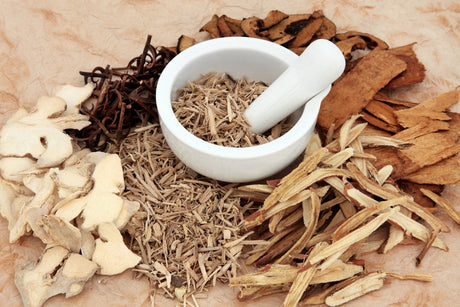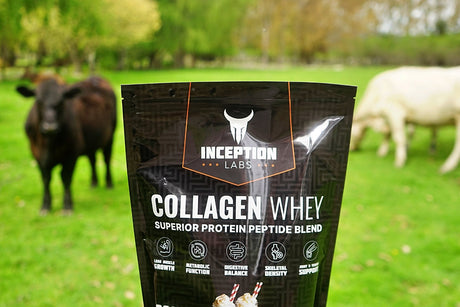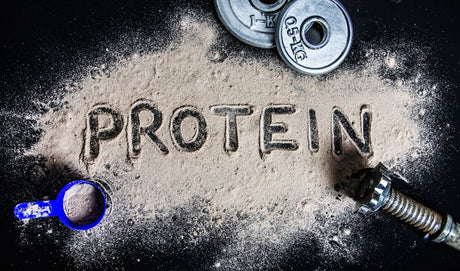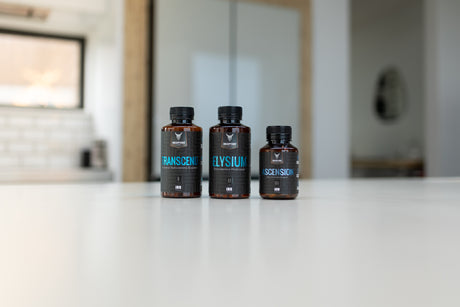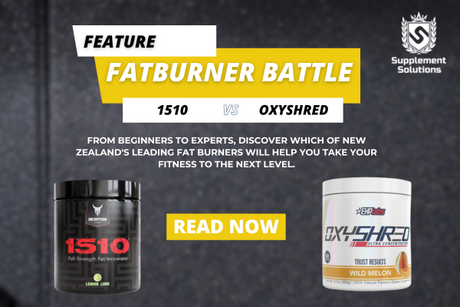What is Cortisol?
Our bodies are constantly working to maintain a state of homeostasis, or balance. To do this, our bodies produce hormones that help regulate various functions, including blood pressure, metabolism, and immune response. One of these hormones is cortisol. Cortisol is produced by the adrenal glands and plays a vital role in the body's stress response. When we are exposed to a stressful situation, cortisol helps increase blood sugar levels and blood pressure and suppresses the immune system. In short, cortisol helps the body prepare for and respond to stress (McKwen, 2008). While this may sound like a negative thing, cortisol is essential for good health. It helps the body to adapt to changes and recover from challenges.
Cortisol levels are highest in the morning, helping wake the body up and prepare it for the day ahead. They then gradually decline throughout the day, reaching their lowest levels at night. These daily fluctuations are known as the cortisol circadian rhythm. The body's internal clock controls the cortisol circadian rhythm, which is reset each day by exposure to light. Several factors can disrupt the cortisol circadian rhythm, including sleep deprivation, shift work, and chronic stress (McKwen, 2008).
Cortisol and General Health
Excess cortisol has been linked to weight gain, high blood pressure, type 2 diabetes, and heart disease. It can also interfere with cognitive function, namely learning and memory, and contribute to depression and anxiety. In addition, cortisol suppresses the immune system, making people more susceptible to illness. On the other hand, when cortisol levels are chronically low, it can lead to fatigue, difficulty concentrating, low blood pressure, and muscle weakness.
Cortisol and Muscle Development
One of the most well-known effects of high cortisol levels is that it can lead to muscle atrophy, or the loss of muscle tissue. When cortisol levels are elevated, the body breaks down muscle proteins to use the amino acids for energy, in a process known as protein catabolism. In addition, cortisol inhibits the production of new muscle cells, further contributing to muscle loss. This can be a major setback for professional and aspiring athletes, as it takes time and effort to build up muscle mass.
Cortisol and Body Fat
Cortisol also plays an important role in regulating metabolism and can impact your waistline. When you're stressed, your body releases cortisol, which tells your body to store more fat, especially around your abdomen. In times of stress, your body believes it needs to have energy reserves in case of emergency. Additionally, high cortisol levels can lead to cravings for high-sugar and high-fat foods, which can also contribute to weight gain. On the other hand, low cortisol levels can result in difficulty losing weight and fatigue and muscle weakness.
Supplements for Supporting Cortisol Balance
Supplements can play an essential role in balancing cortisol levels and restoring your body's natural equilibrium. Some of our best recommendations at Supplement Solutions include;
ATP Science Cort Rx
ATP Science Cort Rx is a natural formula containing a blend of herbs and nutrients that help to support the adrenal glands and maintain healthy cortisol levels.
Key active ingredients include;
Ashwagandha – an adaptogenic herb used since at least 6000BC to help cope with physical and mental stress. This extract from the plant reduces symptoms of chronic cortisol imbalance like depression or anxiety, and improves cognition and psychometric performance in those who take it regularly (Chandrasekhar, 2012).
Rhodiola – a hardy plant that grows in cold, mountainous regions of Europe and Asia. For centuries, rhodiola has been used as a traditional remedy for various ailments, including fatigue, anxiety, and depression. Recently, scientific research is beginning to validate some of these claims by showing that rhodiola can help decrease levels of cortisol in the body, which can reduce stress and improve overall well-being. Further studies show how taking rhodiola regularly may help improve physical activity recovery times after heavy weight training by decreasing cortisol production while at rest (Olsson, 2009).
|
|
| Purchase ATP Science Cort Rx |
Kodiak Sports Anabolic Coma
Cortisol levels are highest in the morning and gradually decline throughout the day. However, cortisol levels can become imbalanced when the body does not get enough rest. One of the most effective ways to restore cortisol balance is to get enough REM sleep. REM sleep is a stage of sleep associated with vivid dreaming and increased brain activity, and it is thought to play an important role in memory and learning. Research has shown that people who get enough REM sleep have lower cortisol levels. In one study, sleep-deprived participants had higher cortisol levels throughout the day. This suggests that REM sleep may help regulate cortisol levels (Hirotsu, 2015).
One of the most potent sleep formulas currently on the market, Coma by Kodiak Sports promotes deep REM sleep and enhanced muscle recovery. Coma consists of 15 sleep and recovery ingredients in clinical doses and a stress relief matrix that helps you relax and calm before getting a good rest.
Key ingredients include;
Ashwagandha – As detailed above, this extract aids to reduce symptoms of chronic cortisol imbalance and improve cognitive and psychometric performance.
Nelumbo Nucifera – The lotus plant, also known as Nelumbo nucifera, is a flowering plant long used in traditional medicine. Lotus has various medicinal properties, including the ability to regulate cortisol levels. Nelumbo nucifera supports to reduce cortisol levels by stimulating the production of another hormone called adrenocorticotropic hormone (ACTH). ACTH helps regulate the release of cortisol from the adrenal glands (Kulkarni, 2008).
L-Tryptophan – an essential amino acid that the body needs to produce the neurotransmitter’s serotonin and norepinephrine. It also plays a role in melatonin production, which helps regulate the sleep-wake cycle. While the body can produce small amounts of L-Tryptophan, it is not enough to meet the body's needs. As a result, people need to get L-Tryptophan through diet and supplementation (Cerit, 2013).

|
| Purchase Kodiak Sports Anabolic Coma |
ATP Science ZMAST
ATP Science ZMAST is a supplement that provides essential nutrients in a refreshing beverage, with flavours reminiscent of our childhood days sipping Raro – only this time providing nutrients to the body instead of endless sugars. ATP Science combines zinc, magnesium, selenium, and taurine in this blend, all of which we typically lack through insufficient consumption in our standard diets and have a profound impact on cortisol equilibrium. These nutrients are essential for optimal health in everyday life, with increased requirements for replenishing stores of these nutrients after extensive exercise sessions and even just everyday stresses.
Key ingredients include;
Zinc – a mineral that plays an important role in many biological processes, including cell growth and division, DNA synthesis, and wound healing. It is also involved in the regulation of hormones, including cortisol. Studies have shown that the maintenance of sufficient zinc levels supports the stabilisation of cortisol levels over time, and zinc supplementation has been shown to inhibit cortisol secretions temporarily. On the other hand, prolonged stress has been demonstrated to deplete zinc concentrations in the blood, so ensuring long-term sufficiency in zinc consumption is essential to cortisol balance. Typical symptoms of zinc deficiency include hair loss, unexplained weight loss, and reduced cognitive function and alertness (Brandão-Neto, 1990).
Magnesium – one of the most important minerals for our bodies. It is involved in over 300 biochemical reactions, including energy production, DNA replication, and protein synthesis. Magnesium is also essential for the proper functioning of our nervous system and muscles. Magnesium helps keep cortisol levels in check by binding to cortisol molecules and preventing them from being released into the bloodstream. As a result, magnesium can help to reduce stress levels and promote relaxation (Cuciureanu, 2011).
Selenium – a trace mineral found around most of the world in soil, water, and some foods, New Zealand is the only country globally in which selenium is absent in the soil (and therefore water and locally grown produce). It's an integral part of many enzymes and plays a role in reproduction, thyroid function, DNA synthesis, and protection from oxidative damage and infection. Research has shown that selenium can help to reduce cortisol levels. One study found that supplementing with selenium for eight weeks reduced cortisol levels by 33% in people with high stress levels. Selenium may also help to protect against some of the adverse effects of cortisol, such as decreased immunity (Torres, 2021).
Taurine - an essential amino acid that is found in various tissues in the body, including the brain, skeletal muscle, and heart. It is involved in multiple biochemical processes, including detoxification, protein synthesis, and cell membrane stabilisation. Taurine has also been shown to have anti-inflammatory and antioxidant effects and improve cognitive function and memory. A growing body of evidence suggests a relationship between cortisol and taurine levels in the body. Though they have different functions, cortisol and taurine work together to help the body respond to stress. When cortisol levels are high, taurine helps to protect cells from damage. In turn, taurine helps to regulate cortisol levels to maintain a healthy balance.
Authors
Walley, Matt, Walley, Elise. 2022. Managing cortisol for the benefit of fitness and general health.
References
McEwen B. S. (2008). Central effects of stress hormones in health and disease: Understanding the protective and damaging effects of stress and stress mediators. European journal of pharmacology, 583(2-3), 174–185. https://doi.org/10.1016/j.ejphar.2007.11.071
Chandrasekhar, K., Kapoor, J., & Anishetty, S. (2012). A prospective, randomised double-blind, placebo-controlled study of safety and efficacy of a high-concentration full-spectrum extract of ashwagandha root in reducing stress and anxiety in adults. Indian journal of psychological medicine, 34(3), 255–262. https://doi.org/10.4103/0253-7176.106022
Olsson, E. M., von Schéele, B., & Panossian, A. G. (2009). A randomised, double-blind, placebo-controlled, parallel-group study of the standardised extract shr-5 of the roots of Rhodiola rosea in the treatment of subjects with stress-related fatigue. Planta medica, 75(2), 105–112. https://doi.org/10.1055/s-0028-1088346
Hirotsu, C., Tufik, S., & Andersen, M. L. (2015). Interactions between sleep, stress, and metabolism: From physiological to pathological conditions. Sleep science (Sao Paulo, Brazil), 8(3), 143–152. https://doi.org/10.1016/j.slsci.2015.09.002
Kulkarni, M. P., & Juvekar, A. R. (2008). Attenuation of Acute and Chronic Restraint Stress-induced Perturbations in Experimental Animals by Nelumbo nucifera Gaertn. Indian journal of pharmaceutical sciences, 70(3), 327–332. https://doi.org/10.4103/0250-474X.42982
Cerit, H., Jans, L. A. W., Van der Does, W. (2013). The effect of tryptophan on the cortisol response to social stress is modulated by the 5-HTTLPR genotype, Psychoneuroendocrinology, Volume 38 (2), 201-208, ISSN 0306-4530.
Brandão-Neto, J., de Mendonça, B. B., Shuhama, T., Marchini, J. S., Pimenta, W. P., & Tornero, M. T. (1990). Zinc acutely and temporarily inhibits adrenal cortisol secretion in humans. A preliminary report. Biological trace element research, 24(1), 83–89. https://doi.org/10.1007/BF02789143
Cuciureanu MD, Vink R. Magnesium and stress. In: Vink R, Nechifor M, editors. Magnesium in the Central Nervous System [Internet]. Adelaide (AU): University of Adelaide Press; 2011. Available from: https://www.ncbi.nlm.nih.gov/books/NBK507250/
Torres, D. J., Alfulaij, N., & Berry, M. J. (2021). Stress and the Brain: An Emerging Role for Selenium. Frontiers in neuroscience, 15, 666601. https://doi.org/10.3389/fnins.2021.666601





